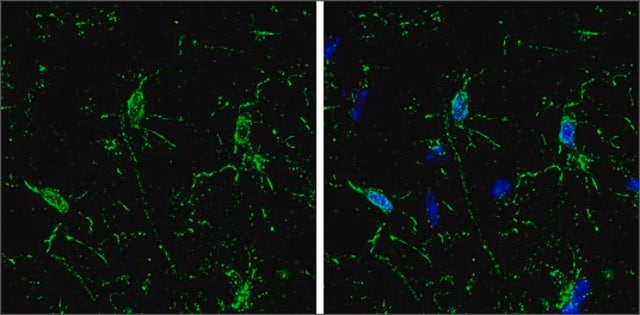E1518
Echistatin from Echis carinatus
lyophilized powder, γ-irradiated, BioXtra
Sign Into View Organizational & Contract Pricing
All Photos(1)
About This Item
Recommended Products
biological source
Echis carinatus
Quality Level
sterility
γ-irradiated
product line
BioXtra
assay
>95% (SDS-PAGE)
form
lyophilized powder
mol wt
5.2-5.4 kDa
packaging
pkg of 50 μg
technique(s)
cell culture | mammalian: suitable
solubility
water: soluble 0.1 mg/mL, clear, colorless
shipped in
ambient
storage temp.
−20°C
InChI key
XLBBKEHLEPNMMF-SSUNCQRMSA-N
General description
Echistatin is a small peptide disintegrin that has no multiple epitopes. It is a single chain polypeptide with a molecular mass of 5400. Echistatin has eight cysteines and the sequence arginine glycine aspartic acid (RGD).
Application
Echistatin from Echis carinatus has been used in diabetic rabbits grouping and treatment and murine iPSC (induced pluripotent stem cell) culture.
Biochem/physiol Actions
Echistatin has the ability to prevent IRS-1 (insulin receptor substrate-1) phosphorylation induced by IGF-1 (insulin like growth factor-1). Echistatin α1, purified from the venom of the saw scaled viper, Echis carinatus has the capability to block platelet aggregation.
Disintegrins represent a novel family of integrin β1 and β3 inhibitor proteins isolated from viper venoms. They are low molecular-weight, cysteine-rich peptides containing the Arg-Gly-Asp (RGD) sequence. They are the most potent known inhibitors of integrin function. Disintegrins interfere with cell adhesion to the extracellular matrix, including adhesion of melanoma cells and fibroblasts to fibronectin, and are potent inhibitors of platelet aggregation.
Storage Class
11 - Combustible Solids
wgk_germany
WGK 3
flash_point_f
Not applicable
flash_point_c
Not applicable
Certificates of Analysis (COA)
Search for Certificates of Analysis (COA) by entering the products Lot/Batch Number. Lot and Batch Numbers can be found on a product’s label following the words ‘Lot’ or ‘Batch’.
Already Own This Product?
Find documentation for the products that you have recently purchased in the Document Library.
Customers Also Viewed
Fengbin Lin et al.
International journal of clinical and experimental pathology, 8(11), 14294-14304 (2016-01-30)
To investigate the effect of disintegrin echistatin on integrin linked kinase (ILK) and subsequent PI3-K/Akt and ERK1/2 signaling pathways in the posterior capsule opacification (PCO) model of diabetic rabbit. 56 rabbits were injected alloxan to model diabetic. Then they accepted
Insulin-like Growth Factor Receptor Signalling (2003)
Ozge Er et al.
Applied biochemistry and biotechnology, 187(4), 1539-1550 (2018-10-03)
Snake venoms are a natural biological source that has potential therapeutic value with various protein compounds. Disintegrins originally were discovered as a family of proteins from snake venoms composed of cysteine rich low molecular weight polypeptides. Disintegrins exhibit specific binding
Echistatin prevents posterior capsule opacification in diabetic rabbit model via integrin linked kinase signaling pathway.
Lin F, et al.
International Journal of Clinical and Experimental Pathology, 8(11), 14294-14294 (2015)
Animal Toxins: Facts and Protocols (2013)
Our team of scientists has experience in all areas of research including Life Science, Material Science, Chemical Synthesis, Chromatography, Analytical and many others.
Contact Technical Service








